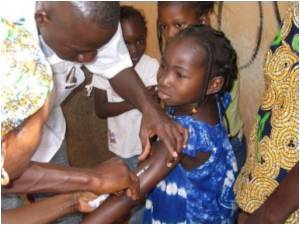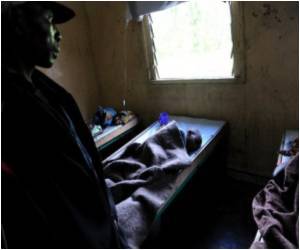A novel vaccine against Meningitis A - a strain which accounts for 80-85 percent of meningitis cases brings hope to Burkina Faso.

"A perfectly healthy child can be playing with friends one minute and be dead in a matter of hours," he told the World Health Assembly in Geneva.
In 1996, when the deadliest epidemic ever tore through this region, infecting more than 250,000 people, the only weapon against it was a short-lasting vaccine used only once epidemics were already in full swing.
In the 2009 epidemic season, 5,342 people died across 14 African countries, according to the World Health Organisation.
In a novel public-private partnership, MenAfriVac was developed specifically for Africa and rapidly brought to market -- manufactured by the Serum Institute of India -- for less than 50 cents per dose.
It usually costs about $500 million to develop and bring a new vaccine to market, something Bill Gates and his foundation are trying to change.
Advertisement
In Burkina Faso there has been only one case of Meningitis-A in 2011, Gates told the meeting in Geneva.
Advertisement
"We have vaccinated 11.5 million people. There are very few cases since the vaccination."
Gates, who wants the same kind of action to see five or six new vaccines introduced in the next decade, said this data makes him hopeful.
"For centuries, meningitis terrorised a region of 400 million people. This vaccine can help end the terror.
"We need to continue creating and delivering more vaccines, but finally, for the first time, we have every reason to expect progress. A bleak picture has turned bright."
For Traore Sekou, 64, a former railway worker in Ouagadougou, who also had his three children vaccinated recently, not having to worry about meningitis is a huge relief.
"I have seen many colleagues lose their children. Now I am reassured because the nurse told us the vaccine immunises for 10 years. Aside from malaria it is the disease which kills the most here so if it is eliminated we can get by because for malaria, we sleep under nets."
If MenAfriVac is introduced throughout southern Africa, the resulting reduction in meningitis cases could free up to $120 million from national budgets by 2010, according to the World Health Organisation.
Source-AFP










